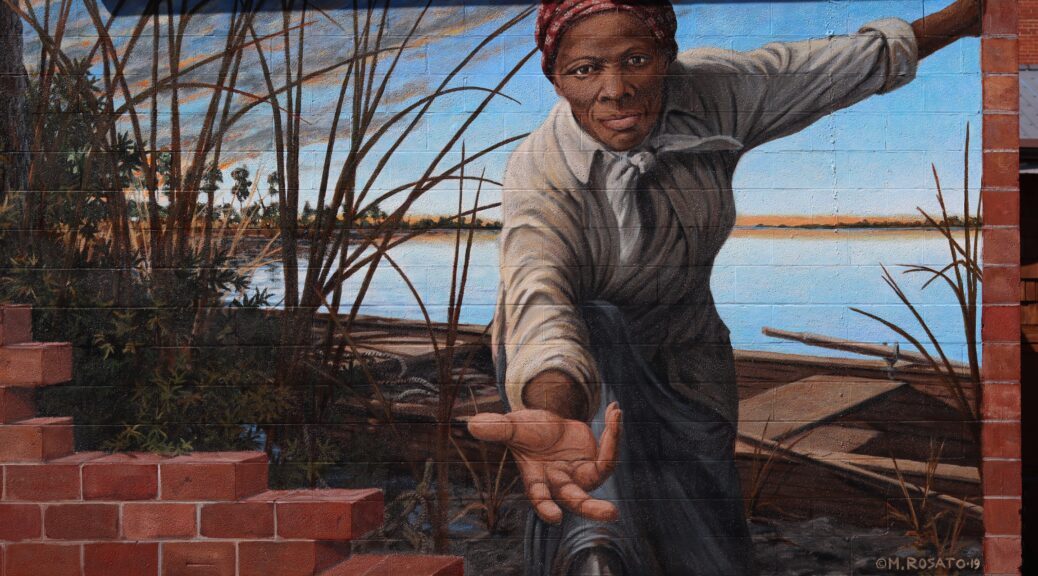As a Black woman, whose family moved up from the Chicago slums to ‘the projects’, I was navigating the intersectionality of race, gender, and poverty in the USA. A historical iconic woman that inspired me would be Harriet Tubman, born a slave. I admire her because not only did she believe in human dignity and rights, but she also acted on her beliefs and principles.
Harriet Tubman understood that she and the others who were enslaved were human beings and not chattel. I had the honor to visit the Harriet Tubman House in Auburn, NY. Her modest home gives witness to her tremendous courage. She had seizures and narcolepsy, i.e., traumatic brain injury, from being hit in the head when an overseer threw a heavy metal weight at a slave. Harriet Tubman could be recognized during Women’s History Month, Disability Pride and Heritage Month and Black History Month.
She was less than 5 feet tall and was the most famous conductor on the Underground Railroad. In 1868, it was estimated that she made 19 trips and led 300 people to freedom. Modern historians have estimated she made 13 trips and led about 70 people to freedom. Whether it was 13 or 19 trips, each time she returned to the South, she risked her life and freedom in the service of others and she never lost a passenger. She was ‘Moses’—leading her people out of slavery.
Being ‘Moses’ on the Underground Railroad was just one of her accomplishments. During the Civil War, in South Carolina, she became the first woman to lead an armed military operation in the United States in what is known as the Combahee Ferry Raid. She was also a Civil War nurse and a Union spy and scout, mapping routes for the Union Army through the swamps of South Carolina. In 1869, she partnered with Elizabeth Cady Stanton and Susan B. Anthony to create the National Woman Suffrage Association. Yes, she was a suffragist! Earning her place in Women’s History Month.
While Harriet Tubman is the North Star, the trajectory of my life is partially due to the wisdom of Sister Catherine Leonard, the Chair of the Psychology Department when I was a psychology student at Clarke College. Sister Catherine was brilliant, kind, and succinct. How impressive was she? She took a brief sabbatical to study with Jean Piaget in Geneva, Switzerland.
I was her star student and had applied to Harvard University for graduate school. After my interview with Harvard, she asked me about the interview. I was incense after the interview. I told her that one of the interviewers had asked me in a condescending tone, “What can Harvard do for you and what can YOU do for Harvard?” and I told her that “If accepted, I’m NOT going!”
She replied emphatically, “If accepted, YOU’RE GOING TO HARVARD!”
Without her having to give any further explanation, I knew she was telling me, ‘don’t let your emotions cloud your judgement;’ ‘don’t cut off your nose to spite your face;’ ‘you can contribute more and have a greater impact with a Harvard degree.’
To this day, I weigh and distinguish between what is principle and what is a nicety. What can be negotiated and what cannot be compromised. It is important to know the difference between cooperation and collaboration versus appeasement. The difference between one’s authentic self and an unyielding pride.
From these two iconic women, I learnt the importance of fighting for all to be treated with respect and human dignity and to focus on the optimum gain rather than immediate gratification!
Photo by Kirt Morris on Unsplash
- Reflection on Women Groundbreakers Storytelling: Serving Diverse Communities – by Dr. Deborah Ashton - April 16, 2024
- DEI, Religion, and Hate Crimes –by Deborah Ashton, Ph.D. - January 16, 2024
- Two Iconic Women Who Inspire Me – by Dr. Deborah Ashton - March 13, 2023

